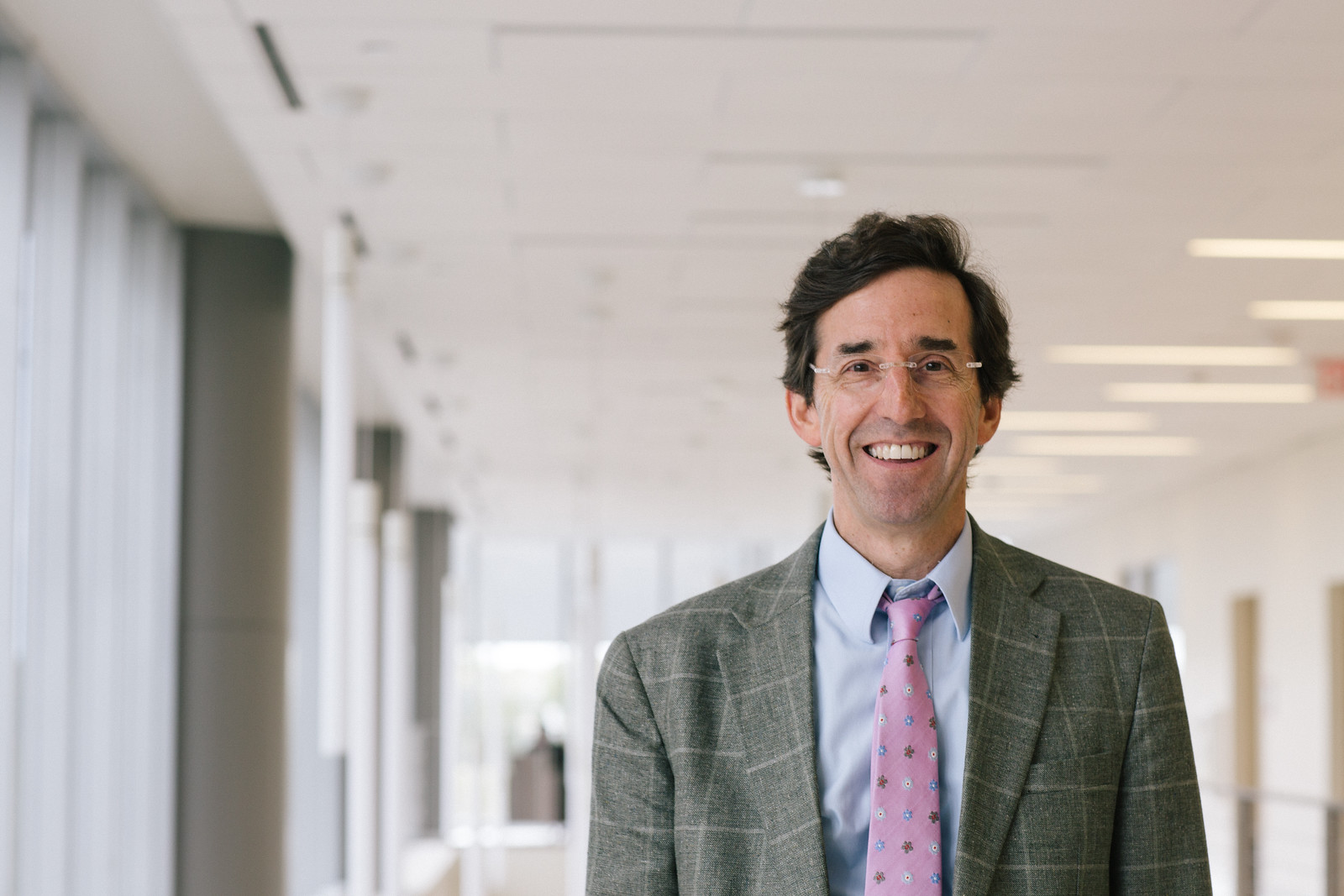

The study suggests that a “values-based” approach where care coordinators identify the values and goals of the patient could have significant benefits for high-need, high-cost patients. | Courtesy of Media Relations
For a high-need, high-cost patient, a trip to the doctor can quickly feel uncomfortable. Conversations that feel they place blame or over-medicalize can push patients away from engaging in the care they need.
A study by Dr. David Buck, associate dean for community health at the College of Medicine, and his research team suggests that a “values-based” approach where care coordinators identify the values and goals of a patient could have significant improvements on the daily emotions, functions and overall well-being of high-need, high-cost individuals.
“You can’t address these social needs in an emergency room, so we need to address those in primary care,” Buck said. “We need to address those with social infrastructure rather than just medicalizing and criminalizing either people’s social problems or poverty in general.”
Buck and his team published the study in the journal Population Health Management, and referred to the approach as ‘a novel intervention that integrates a psychological, values-based approach with coordinated care management’.
The “values-based” approach was applied to 18 high-need, high-cost patients over six months at the Patient Care Intervention Center in Houston, a nonprofit organization that Buck founded.
“This values based approach is a significant pivot from this problem, and to what is most important to you,” Buck said. “How can we engage people in care more effectively?”
High-need, high-cost patients are defined as an adult with multiple chronic diseases and limitations to daily functions and their ability to take care of themselves, according to the American Hospital Association.
Experiences with abuse, poverty or homelessness can all be a reality for these patients, which Buck said can cause barriers in their relationship to primary care.
“I think that we need to be more accessible as health care providers,” Buck said. “We need to be able to be receptive, but also responsive to the community and its members to be able to address the social ills and not medicalize it.”
“A common practice seen in cases with high-need, high-cost patients is patient self-blame,” Buck said.
If the patient has a side effect or their medicine doesn’t work they’ll assume it’s entirely their fault.
“Instead of engaging, they feel like ‘The medicine didn’t work either. I’m embarrassed to even come back and see you instead of that treatment I was supposed to do. I have side effects that don’t even make any sense. I can’t even take medicine,’” Buck said.
Buck cared for a patient with HIV and bipolar disorder who had racked up high bills with hundreds of visits to the emergency room every year. Buck said they had kept trying to get him in care unsuccessfully — until his team pivoted the approach to ‘who and what is most important to him’.
The patient told them that his dog was what he cared about most in the world, and the team’s entire approach to his care changed.
“We began to focus on movements getting in the way of you, getting the care you want for your dog or you being that kind of parent to that dog,” Buck said.
The patient would see his dog tied up when he was on his way to the emergency room and think ‘I’m not being good to my dog’ So, his research team helped him find ways to change that.
“Over time, we began to use that model and then structured the questions,” Buck said. “Not ‘What are you doing wrong this time,’ but instead ‘Well, what behavior serves those values?’”
In time, Buck said he hopes that the College of Medicine could implement innovative approaches to health and health care.
“I hope that one day we demonstrated the efficacy of this approach and I hope it, along with many other innovative approaches, are going to be accessible to everyone,” Buck said.
news@thedailycougar.com
—
“Study by UH dean suggests new approach for ‘high need, high cost’ patients” was originally posted on The Daily Cougar
